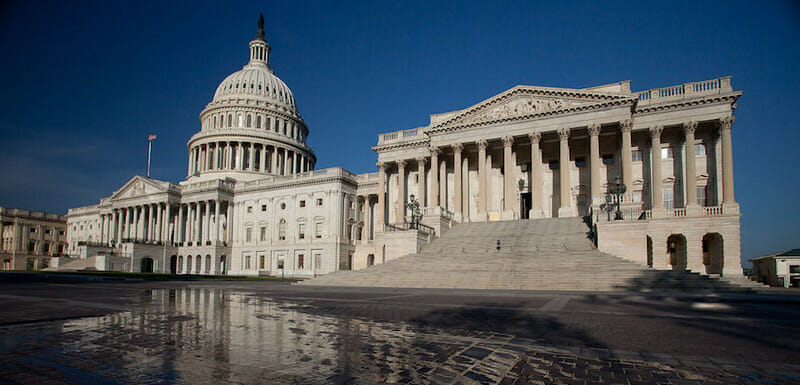A new $1 trillion bipartisan infrastructure Bill was advanced in the Senate on Friday by a vote of 66-28. Despite hopes that Biden’s Bill would pave the way for transformative change to America’s transport and energy infrastructure, the negotiation process has forced concessions on crucial parts of the Bill’s climate focus.
The Bill has been criticised for avoiding the major changes in energy production, transport, and tax incentives that need to happen to avoid a severe climate catastrophe.
The package includes $550 billion for new public works projects and $73 billion to upgrade the electric grid. It promises investment in carbon-capture and storage technology, hydrogen, and nuclear power. $7.5 billion has also been allotted for building new electric charging stations.
But this $7.5 billion is much less than the $174 billion investment in electric cars in Biden’s original proposal: The $2 trillion plan proposed tax incentives for electric car buyers, promising to help America’s most emitting sector, transportation, transition away from oil and gas.
Related Articles: Biden’s Trillion Dollar Infrastructure Package Moves Forward, but Into an Uncertain Future | Biden’s Week of Summits: What Results?
Another major omission was a Clean Electricity Standard, which would require a percentage of retail electricity sales to come from low and zero-carbon electricity sources. This Standard was a crucial element, bolstering hopes that this Bill would mark a decisive transition away from the nation’s heavy dependence on fossil fuels for energy.
$363 billion in clean energy tax credits were also missing from the reduced package.
The plan originally pledged large sums to transform transportation, energy supply, and provide tax breaks to the private sector to encourage transition. The Bill is no longer focussed on these central climate concerns but on roads, bridges, railways, and broadband.
The infrastructure deal that is now being debated in the Senate is not the equity-promoting, climate-change-preventing proposal President Biden put forward in the spring–huge elements, like housing, schools, care, & clean energy were largely left out. https://t.co/V3WnlqcYrQ pic.twitter.com/puIk0REZo8
— Yonah Freemark (@yfreemark) July 29, 2021
Some Republicans believe the infrastructure Bill should focus on ‘traditional’ infrastructure issues. Sen. Rob Portman, R-Ohio, called the Bill ‘a good compromise’.
But Sen. Ed Markey pointed out ‘If we are not seizing the moment to get our emissions and our clean economy on track, we must reject this deal and work in good faith on a real climate infrastructure package’.
To invest in clean technology and upgrade failing infrastructure are good proposals, but without providing incentives for transition away from fossil fuels the bipartisan Bill leaves the hard work involved in achieving net-zero to another day.
Still, it is undeniable that this Bill remains a step in the right direction. To put it in context, the last push to pass major climate legislation through Congress was in 2010, when efforts to approve a carbon pricing system failed.
And the bipartisan deal is being followed by a $3.5 trillion Democrat-only package that could fill in some of these gaps. Using a process called Reconciliation, Democrats could bypass conservative opposition in Congress. Without the need for Republican votes to pass, there is hope that this new Bill includes some of the essential, radical measures in energy and transport infrastructure desperately needed to reduce the impact of the climate crisis.
Editor’s Note: The opinions expressed here by Impakter.com columnists are their own, not those of Impakter.com. — In the Featured Photo: US Senate. Featured Photo Credit: Sebastian Vital.








